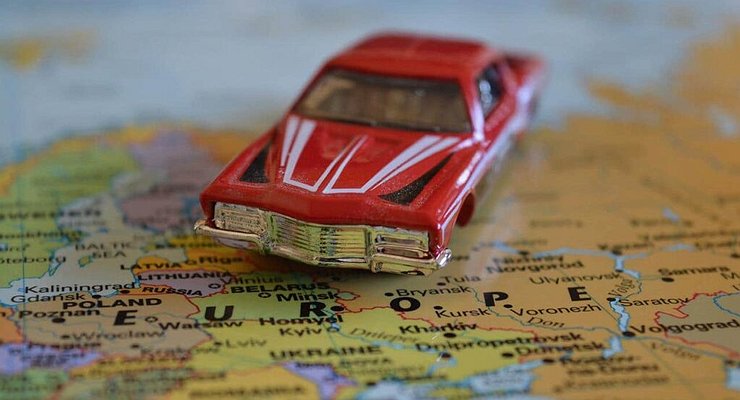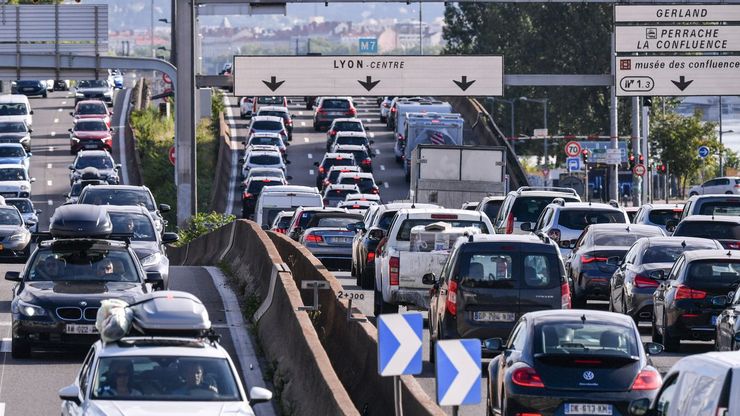Why Europe’s refusal of diesel cars only benefits Russians
- November 1, 2022
- 0
For years, the countries of the “first world” loudly and, as it turned out, very recklessly demanded the formation of a “green economy”, the rejection of the use
For years, the countries of the “first world” loudly and, as it turned out, very recklessly demanded the formation of a “green economy”, the rejection of the use

After announcing the sanctions and visiting Europe as a privilege, the politicians of the Old World have opened a “Pandora’s box”, the filling of which carefully and thoughtfully grinds the once most peaceful and stable region of the world. Inflation, production cessation, bill growth, and so on and so forth. Macroeconomics – what can a mere mortal do with it? And here’s what: in the fall they began to “count chickens”, and it turned out that from now on many of the usual advantages have become inaccessible. Diesel cars for example. When we say “not available”, we don’t mean a high price, but an empty tank, which is not only expensive to fill, but also impossible. Extinguish the candles.
Spain is already struggling with a serious shortage of “heavy” fuel. The head of the Spanish oil refinery Repsol SA, CEO Josu John Imaz stressed that there are serious problems with middle distillates – diesel fuel, “stove” and “fuel” for jet engines: “we are running out of stocks in some European countries.” What does this mean? Lines at gas stations? No, it’s much worse.
More than a third of diesel fuel sold in Europe was supplied directly from Russia. The region’s refineries have never been able to independently produce the necessary volume in the markets, and now, as the Old World awaits a complete embargo on our oil, which is essentially diesel fuel, the situation has become even more critical. . Let’s add strikes at French refineries, high demand due to the rejection of now expensive natural gas and, of course, the coming cold weather. The result is a shortage: many consumers will simply not be able to buy fuel in the near future.
The AvtoVzglyad portal previously wrote that the first “alarm bell” for diesel cars in Europe was the problems with the main urea producer, BASF, but this is only the beginning of the end. Equipment on “heavy” fuel is becoming more and more expensive to use and therefore cheaper to purchase. So now it’s time to think about purchasing a diesel car from the southern regions of Europe: their prices will fall, the euro exchange rate has stabilized against our currency at about 61 rubles for 1 € and the cubic volume of many “cars” powered by diesel engines is extremely small, so and “customs clearance” will not ruin it.
In short, the purchase of a fairly fresh car that has covered its miles on slippery roads will cost less than a year ago. Definitely, this family budget option is many times more attractive than sitting in a KIA Rio taxi or native Zhigul. And also with service there are no problems – the trade balance with Turkey has reached historic highs, and the focus is not on textiles and household appliances with fruit, but on another aspect of the Turkish economy – the production of components and spare parts for cars .

After announcing the sanctions and visiting Europe as a privilege, the politicians of the Old World have opened a “Pandora’s box”, the filling of which carefully and thoughtfully grinds the once most peaceful and stable region of the world. Inflation, production cessation, bill growth, and so on and so forth. Macroeconomics – what can a mere mortal do with it? And here’s what: in the fall they began to “count chickens”, and it turned out that from now on many of the usual advantages have become inaccessible. Diesel cars for example. When we say “not available”, we don’t mean a high price, but an empty tank, which is not only expensive to fill, but also impossible. Extinguish the candles.
Spain is already struggling with a serious shortage of “heavy” fuel. The head of the Spanish oil refinery Repsol SA, CEO Josu John Imaz stressed that there are serious problems with middle distillates – diesel fuel, “stove” and “fuel” for jet engines: “we are running out of stocks in some European countries.” What does this mean? Lines at gas stations? No, it’s much worse.
More than a third of diesel fuel sold in Europe was supplied directly from Russia. The region’s refineries have never been able to independently produce the necessary volume in the markets, and now, as the Old World awaits a complete embargo on our oil, which is essentially diesel fuel, the situation has become even more critical. . Let’s add strikes at French refineries, high demand due to the rejection of now expensive natural gas and, of course, the coming cold weather. The result is a shortage: many consumers will simply not be able to buy fuel in the near future.
The AvtoVzglyad portal previously wrote that the first “alarm bell” for diesel cars in Europe was the problems with the main urea producer, BASF, but this is only the beginning of the end. Equipment on “heavy” fuel is becoming more and more expensive to use and therefore cheaper to purchase. So now it’s time to think about purchasing a diesel car from the southern regions of Europe: their prices will fall, the euro exchange rate has stabilized against our currency at about 61 rubles for 1 € and the cubic volume of many “cars” powered by diesel engines is extremely small, so and “customs clearance” will not ruin it.
In short, the purchase of a fairly fresh car that has covered its miles on slippery roads will cost less than a year ago. Definitely, this family budget option is many times more appealing than sitting in a KIA Rio taxi or native Zhigul. And also with service there are no problems – the trade balance with Turkey has reached historic highs, and the focus is not on textiles and household appliances with fruit, but on another aspect of the Turkish economy – the production of components and spare parts for cars .
Source: Avto Vzglyad
I’m Sandra Torres, a passionate journalist and content creator. My specialty lies in covering the latest gadgets, trends and tech news for Div Bracket. With over 5 years of experience as a professional writer, I have built up an impressive portfolio of published works that showcase my expertise in this field.